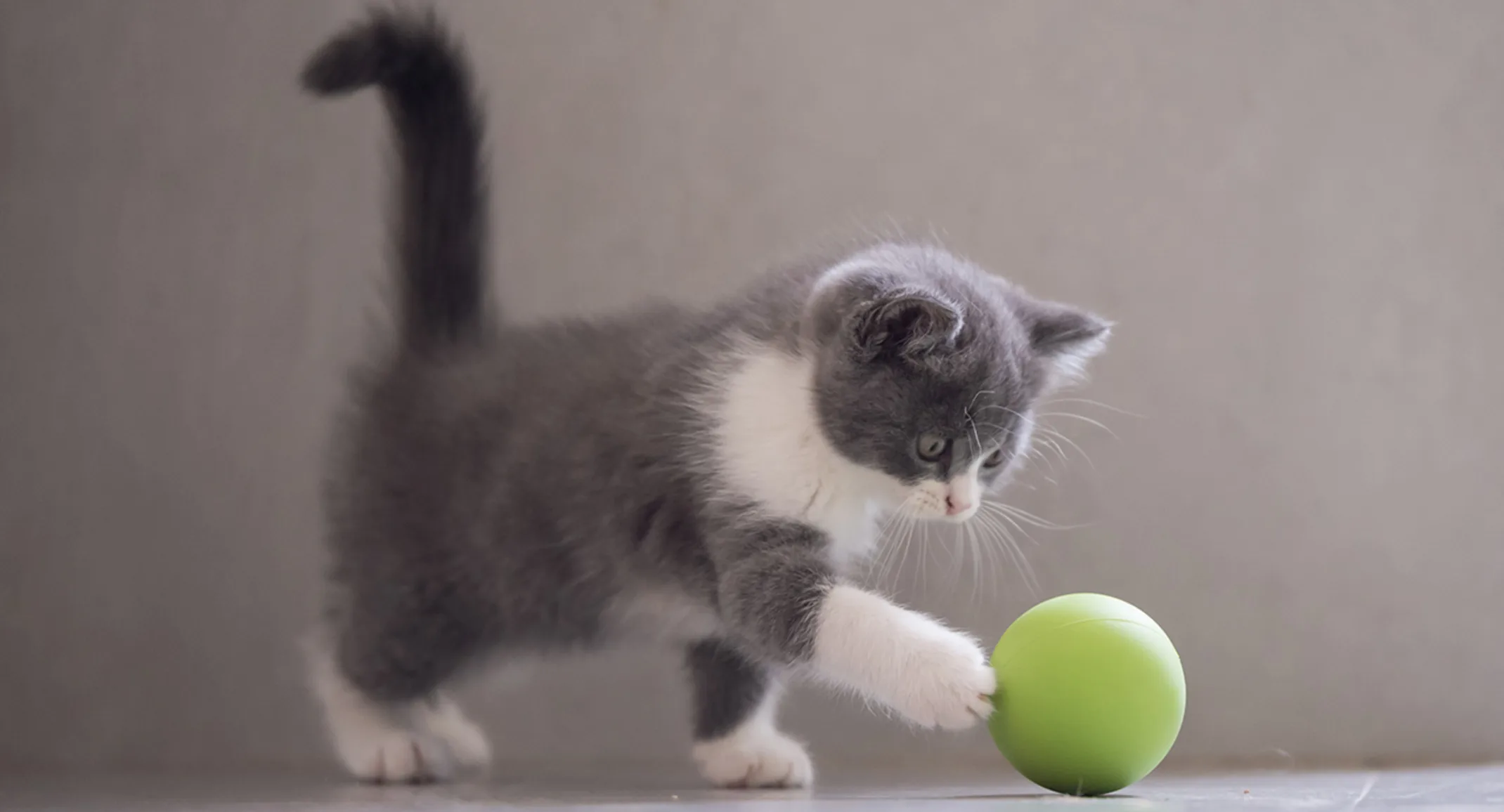Kittens are the definition of cuteness, and their tiny eyes, wispy fur, and endearing antics are hard to resist. However, caring for a kitten, especially during their first year of life, takes patience, commitment, and an understanding of feline development. Similar to human babies, kittens go through important developmental stages that require different care levels as they become full-fledged adult cats. If you have recently adopted a kitten or plan to, preparing for their developmental milestones will help you raise a strong, healthy, and happy cat.
Kitten developmental milestones from birth to 8 weeks
Kittens are born deaf, and do not open their eyes—which are blue at birth— until their second week. Ideally, kittens should remain with their mothers until 8 weeks of age, or until they have been weaned to kitten food. A lot happens during a kitten's first year of life, especially during the first eight weeks, including:
1 Week — Your kitten’s ears begin to unfold.
2 Weeks — Your kitten’s ears have completely unfolded, and their eyes open, but their vision is poor.
3 Weeks — Your kitten begins walking, their teeth start to erupt, and you can start introducing them to a litter box.
5 Weeks — Your kitten can regulate their body temperature without an additional heat source. They should be comfortable using the litter box.
6 Weeks — Your kitten’s vision and hearing are fully developed, and they are playful and curious. You should schedule their first veterinary visit.
7 Weeks — Your kitten’s eye color is beginning to change, and all of their baby teeth have come in.
8 Weeks — Your kitten has their adult cat eye color, and is becoming increasingly independent and energetic. Your kitten can begin eating dry and wet kitten food three to four times per day.
9 Weeks — Your kitten begins displaying adult cat behaviors, and using their body language to communicate.
Kitten developmental milestones from 3 to 6 months
During this developmental stage, kittens become more independent and confident as they explore their environment and their abilities. Their antics will keep you entertained as they enjoy rough and tumble play. You can expect the following during this stage:
Most adult teeth come in — At around 3 months of age, their baby teeth begin to fall out, and are soon replaced with permanent teeth. Ensure your kitten has plenty of toys, because teething kittens like to chew on everything.
Body fills out — Kittens begin to fill out during this period, changing from fluffy fur balls to lean and muscular young cats.
Sexually mature— Although your kitten is still young, they will soon be able to reproduce. Prevent pregnancy by having your kittens spayed or neutered before 5 months of age. Spaying or neutering your kitten also reduces some cancer risks.
Kitten developmental milestones from 6 to 12 months
Think of your kitten as a teenager during this developmental stage. Keep your kitten healthy by having their vaccine series completed, and ensuring they are spayed or neutered. This is also the time to start them on regular parasite prevention. You can expect the following during this feline developmental stage:
Enthusiastic play sessions — Young cats have a lot of energy, and seemingly play during all hours of the day or night.
Adult-sized body — Your cat is considered mature, and ready to switch to adult cat food. Mix the adult food with their kitten food, and gradually decrease the kitten food amount.
Full set of adult teeth — Your cat’s adult teeth are all in, and you should brush them regularly for optimal dental health.
Preparing for your kitten Kittens are cuddly and adorable, but they are also a big responsibility. Before bringing home your new kitten, set them up for success by doing the following:
Get essential kitten supplies — Kittens may be tiny, but they have big needs. Before bringing home your new kitten, ensure you have all their essentials such as:
Water and food bowls
Food (wet and dry)
Litter
Litter box
Bed
Toys
Scratching posts
Grooming tools
Toys
Collar and tag
Carrier
Kitten-proof your home — Kittens are extremely curious, and you should kitten-proof your home to prevent them from becoming injured. Store cleaning products securely in cabinets, and put away electrical and window blind cords. If you have houseplants, ensure they are not toxic to cats, because curious kittens are often tempted to try a nibble, and they can become severely ill.
Adding a kitten to your family increases the love, cuddling, and fun! If you have any questions about your new kitten, or would like to schedule their first preventive care examination, use this locator to find a veterinary clinic near you.

